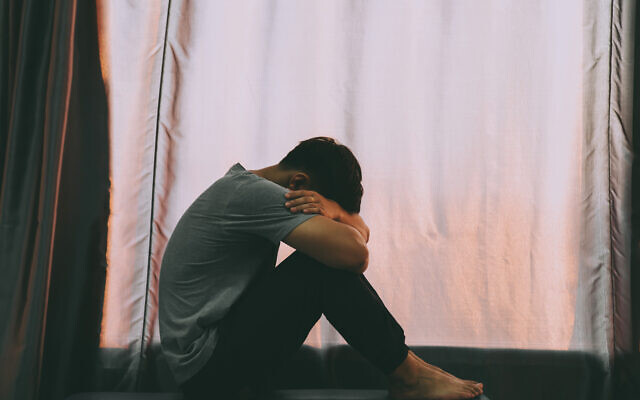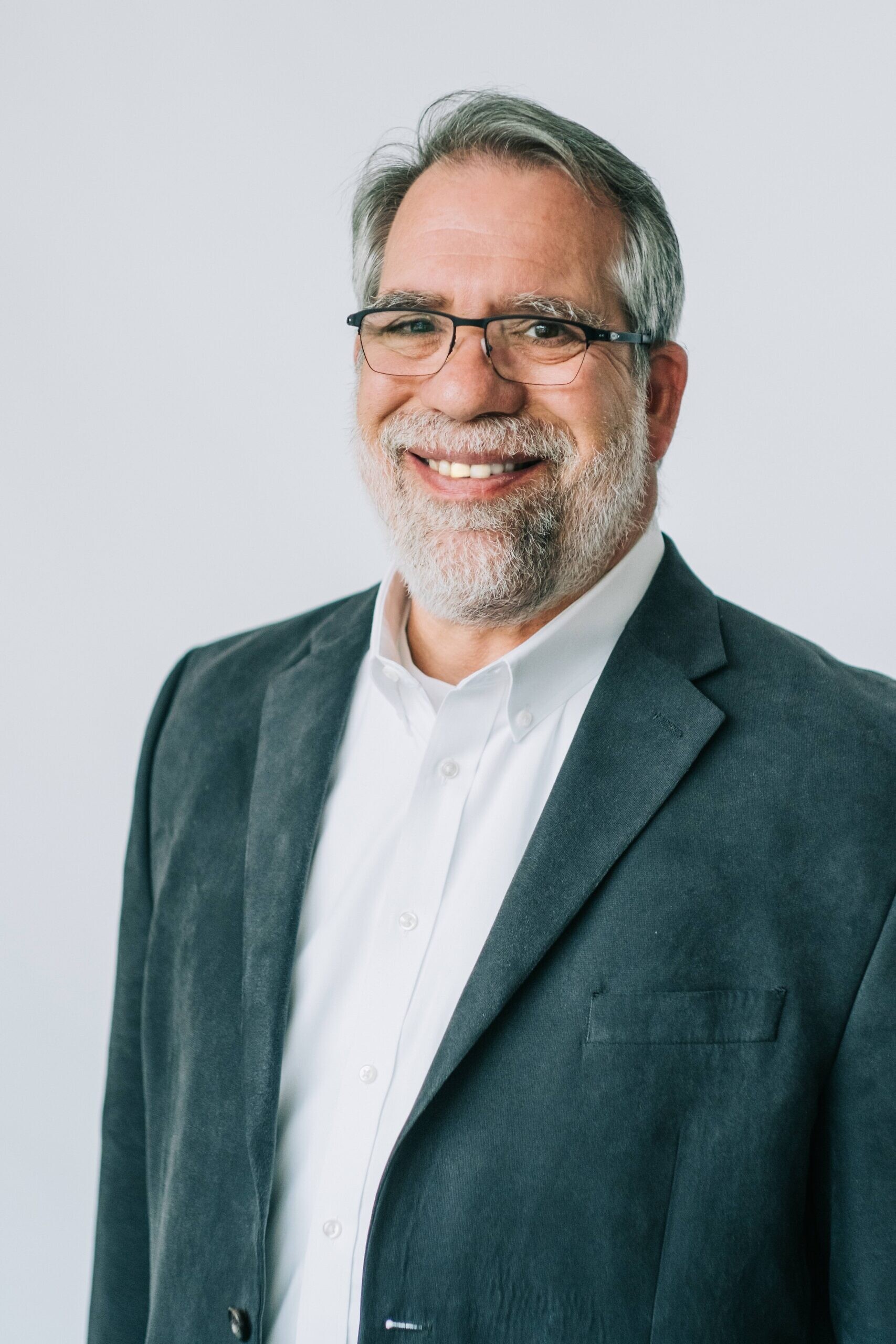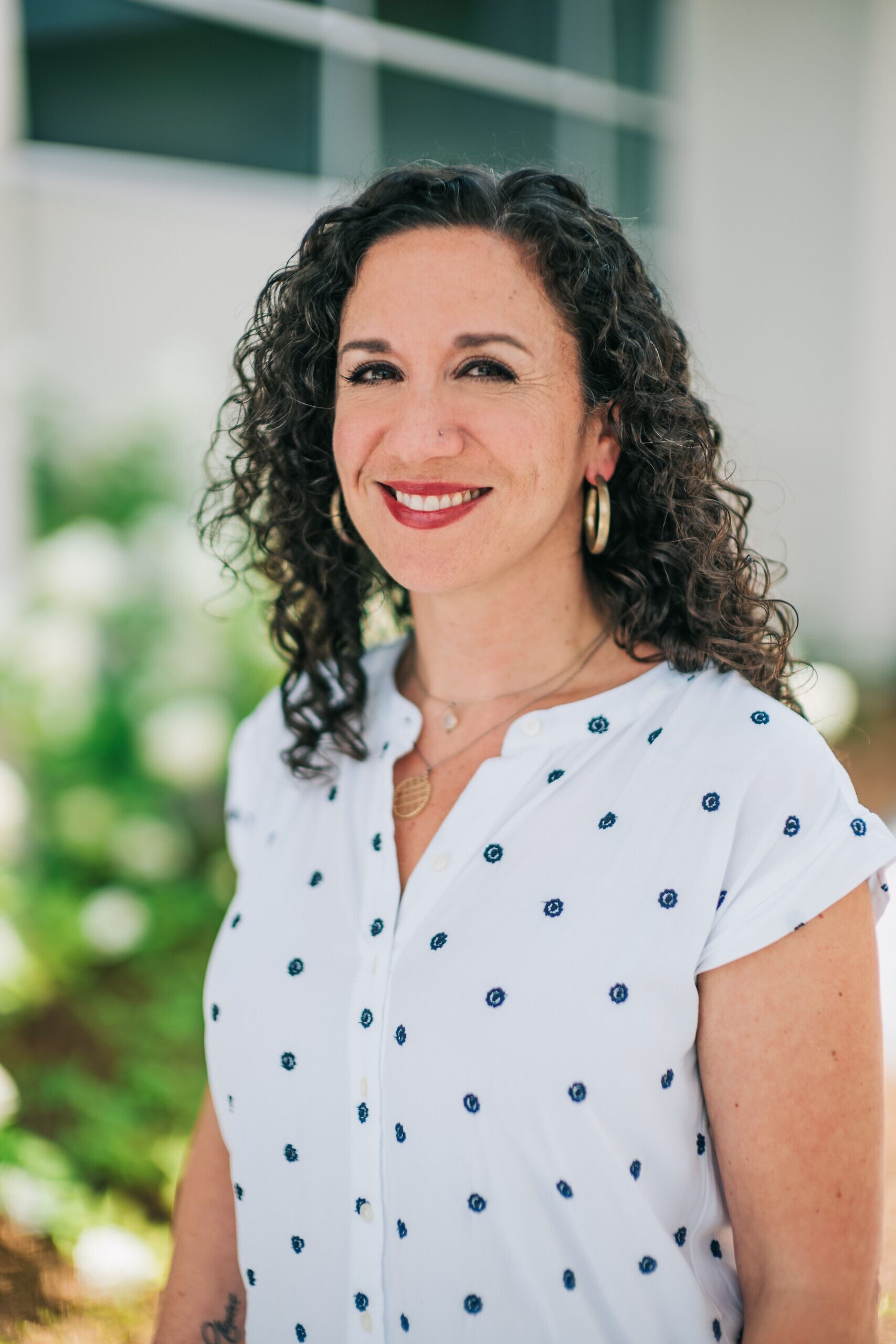COVID-19: Mental Health, How Are People Coping?
Some responses to the coronavirus, such as wearing a mask, are obvious. Others, less obvious, are more worrisome. Mental health and drug addiction are an increasing concern.
Dave Schechter is a veteran journalist whose career includes writing and producing reports from Israel and elsewhere in the Middle East.

Just as a seismograph gauges how the ground moves during an earthquake, calls for mental health and substance abuse services are one measure of the tremors that COVID-19 is causing beneath the surface of Atlanta’s Jewish community.
The frequency of those calls has increased steadily in the past two to three weeks and, based on conversations with counselors providing those services, the trend line will continue upward even after the immediate threat posed by the virus eases.

“It is the unknown that terrifies people and raises anxiety and increases feelings of depression,” said Dan Arnold, who directs clinical services for Jewish Family & Career Services. “The other piece of this is that when this pandemic ends, the mental health issues are going to continue. This is going to be a traumatizing period for people,” he said.
“I don’t think we’ve seen the worst yet in mental health. We’re seeing an uptick in services and a steady growth, but we have not reached the apex at all. We’re going to be flooded with requests,” Arnold said. “We are a community-based organization that does not want to turn people away based on the ability to pay so, yes, we are going to need community support to be able to do that.”
Recognizing that need, one of the first grants made by the Jewish Federation of Greater Atlanta’s COVID-19 emergency fund was $70,000 to support mental health services provided by JF&CS.
The agency received 151 calls for clinical assistance during the week of March 16, as various levels of government began to issue shelter-in-place orders and restrict public gatherings, as many workers relocated to home officers, as businesses laid off or furloughed employees, and as schools sent children home and turned kitchens tables into distance learning centers.
The transition was well underway the week of March 23, when JF&CS received 197 such calls. That figure was approaching 250 as the week of March 30 drew to a close, “and I think it’s just going to keep growing,” said Arnold, a licensed clinical social worker. “I think, quite honestly, that the mental health needs of Atlanta are going to explode in the next two weeks. I think people are going to realize how frightening it is, how life-changing this is.”
The 29 full- and part-time therapists employed by JF&CS shifted their work, which primarily involves talk therapy for individuals and groups, from in-person sessions to telephone and video conferencing platforms when JF&CS closed its doors March 16. “We are going to be available to folks who need services in whatever way we can be available,” he said.

Alyza Berman, a licensed clinical social worker and founder of The Berman Center, which provides mental health and substance abuse counseling in a Jewish context, said that calls to her group were up about 10 percent. “We are definitely getting the clients who really suffer from the isolation and need a lot of social interaction to make them feel better, to get them out of symptoms of depression and anxiety,” she said. Berman Center staff are engaging with their youth and adult clients by phone and online, individually and in “virtual” groups.
No age cohort is immune. “Adolescents are really struggling with social isolation and anxiety,” Arnold said. “Seniors in high school and at college are at wit’s end. These are groups that already were in transition.” There will be no proms, graduation ceremonies or other high school rites of passage. “Their interaction with their peers, with the people who were going through this, their support groups, are gone, too.”
College students have been sent home to finish course work online. “When the economy was roaring, there was a different sense of optics for those kids,” Arnold said. Now, seniors are graduating into an uncertain economy. “They worked for 16 years to march to pomp and circumstance, to throw their mortar boards in the air and say, ‘I’m a college graduate,’ and now that ritual has been taken from them, and there’s a grief process of not being able to observe that ritual in the way they have pictured it.”
Parents with young children at home are struggling. “Suddenly, and some are single parents, they have become teachers and caregivers 24 hours a day, while they’re juggling employment and job responsibilities, or they’re struggling with sudden unemployment,” Arnold said.
Atlanta’s 40-plus congregations are doing their part to meet the needs of families, said Rabbi Laurence Rosenthal of Ahavath Achim Synagogue, who also is president of the Atlanta Rabbinical Association. He and his colleagues are hearing about “a lot of isolation, a lot of mental health issues, a lot of boredom issues, about children acting out.”
Berman cited a client, a widowed single mother with two school-age children, working her full-time job from home, fearing that she will lose that paycheck if her productivity slips, while also trying to be a full-time mom. “There’s a lot of stress for parents who have full-time jobs and now have a full-time job as a home-school teacher, making sure things are running smoothly, trying to mix those roles,” she said.
Sheltering at home while meeting job responsibilities, and worrying about finances, is adding to the stress for the “sandwich generation,” who are raising children while also looking after the welfare of their own parents, Arnold said.
This “new normal” is especially difficult for those elderly who, whether at home or in a senior residence, are alone, particularly those unaccustomed to or lacking the technology to communicate with the families. “They’re isolated and they’re already thinking of end-of-life issues, and there is a growing fear of contracting the virus and dying alone,” Arnold said.
“Social isolation is deadly. Loneliness is deadly. In times of increased anxiety and increased depression, . . . suicide risk is always increased. The underlying issues are very fertile ground. All of the boxes are getting checked for there to be an increase in suicide,” Arnold said.
There also is concern about the welfare of those in abusive domestic relationships, “a population that is at increased risk with shelter-in-place regulations,” he said. He added that JF&CS’s Shalom Bayit (Hebrew for “peace at home”) program is available to those in such situations.
Berman differentiated between stress and anxiety. “Stressed out is the worry that you can’t control the stuff that’s going on around you, which nobody can control right now,” she said. “Anxiety is debilitating. You can’t shake this feeling that’s going on in your head, the catastrophizing.”

How people might cope with the isolation, stress, anxiety and depression worries Leslie Lubell, program manager at HAMSA (Helping Atlantans Manage Substance Abuse), a part of JF&CS. “Trauma doesn’t always show the results immediately,” Lubell said. “People right now are still in scramble mode. They’re still adjusting. It doesn’t feel normal.” The danger comes when someone feels, “This is so uncomfortable I can’t take it anymore,” she said.
“Everybody knows the phrase, ‘the opposite of addiction is connection.’ Such a huge part of recovery is connecting with other people. People have been stopped from doing what they know helps them in recovery,” as 12-step and other programs have shifted from in-person gatherings to video conferencing, Lubell said. “A huge part of what happens at meetings happens before the meeting and after: drinking coffee, talking to each other, making connections. You can’t do that on Zoom.”
Lubell related conversations she had with clients who had left rehabilitation just before the COVID-19 crisis hit. “One of them said to me, ‘Everything the world is telling me now is the opposite of what I learned in rehab,” in terms of being told to shelter-at-home and maintain social distancing.
“Not being able to connect [in-person] is like a slow poison in the recovery community,” said Lubell, who worries about people self-medicating and those in recovery who might relapse, “who might be using or drinking alone, because they’re so isolated.”
In the current environment, “It’s easier to get alcohol than it is to get toilet paper, . . . probably easier to get drugs, too,” Lubell said, without humor.
“I want people to know they don’t have to wait until they are in crisis to get help. The time to build up your defenses is now. You don’t have to wait until you’re falling apart. Be pro-active, take care of yourself; do that now. We’re not guessing about whether this will impact mental health. It will,” Lubell said.
“We have gotten more calls because people are really suffering at home and they can hide” their substance abuse, Berman said. “I just encourage anyone, check on your loved ones.



comments